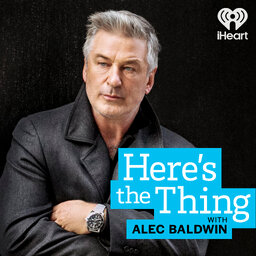Maestro Leonard Slatkin (the "other" Lenny) on His Musical Heritage
Internationally renowned composer and conductor Leonard Slatkin believes that the arts have the power to transform us – and his life and body of work exemplify this belief. Slatkin has served as the Music Director of the St. Louis, Detroit, New Orleans, National and Lyon Symphony Orchestras, Chief Conductor of the BBC Symphony Orchestra in London, and Principal Guest Conductor of countless others. Raised in a musical household, he is the son of violinist, conductor and film composer Felix Slatkin and Eleanor Aller, first chair cellist at Warner Brothers Studios. Both were members of the Hollywood String Quartet and contributed to some of the great film scores of old Hollywood. As a result, Stalkin was surrounded by music from an early age - learning several instruments while young and attending The Juilliard School. He went on to build an impressive career, including six Grammy wins and the National Medal of the Arts. Slatkin is the author of several books on music and conducting, most recently “Eight Symphonic Masterworks of the Twentieth Century - A Study Guide for Conductors.” He also served as host of the weekly radio programs “The Slatkin Project” and “The Slatkin Shuffle.” Leonard Slatkin shares with host Alec Baldwin what it was like growing up surrounded by icons like Marilyn Monroe and Frank Sinatra in his home, discusses how he contributes to an orchestra as its Music Director and reflects on what it means to be part of a musical dynasty.
In 1 playlist(s)
Here's The Thing with Alec Baldwin
Award-winning actor Alec Baldwin takes listeners into the lives of artists, policy makers and perfor…Social links
Follow podcast
Recent clips

Karina Canellakis - from Violinist to Conductor
47:32

From the Archives: Anjelica Huston on Modeling, Movie-Making, and a Life in the Spotlight
48:25

The Fearless Robbie Kaplan
42:32
 Here's The Thing with Alec Baldwin
Here's The Thing with Alec Baldwin